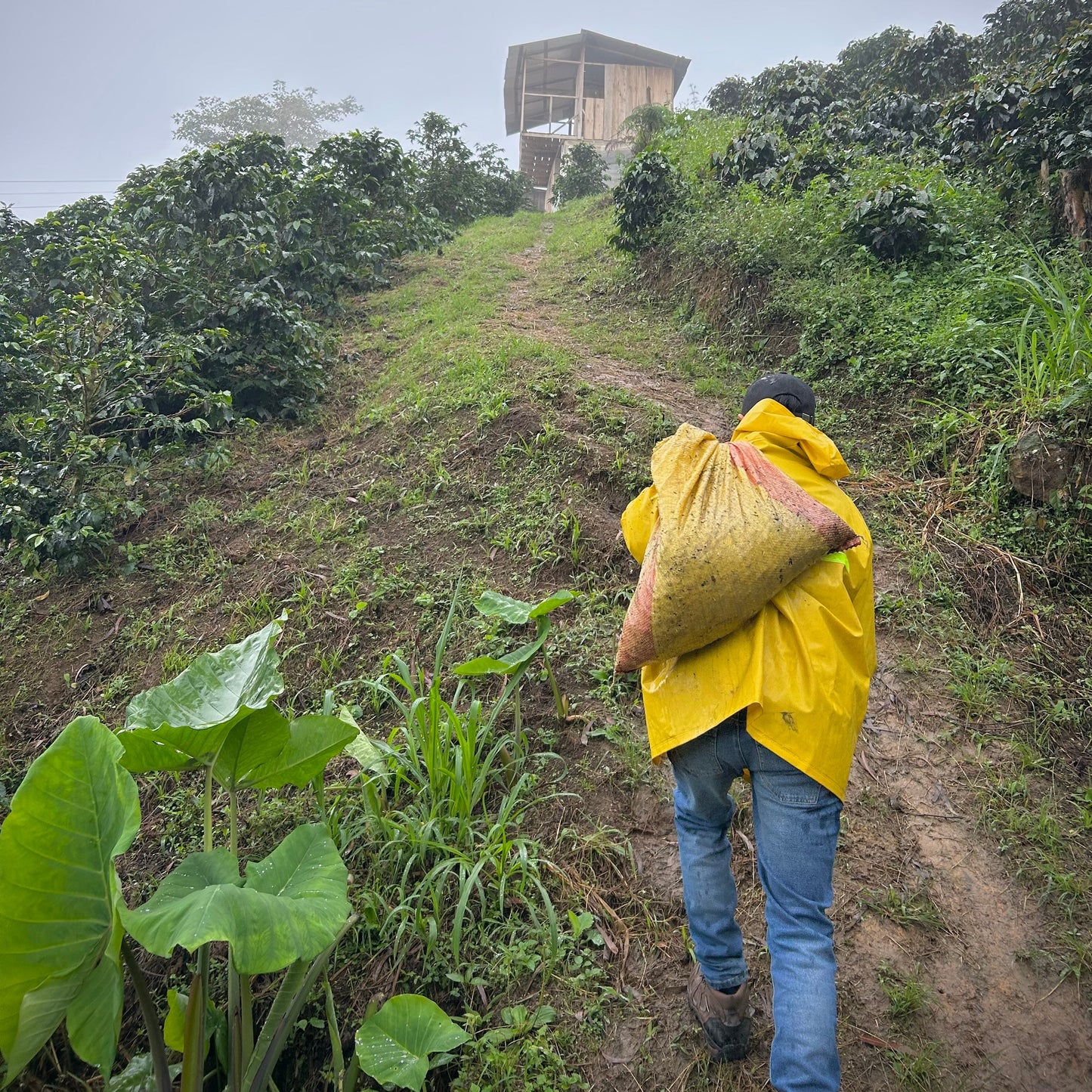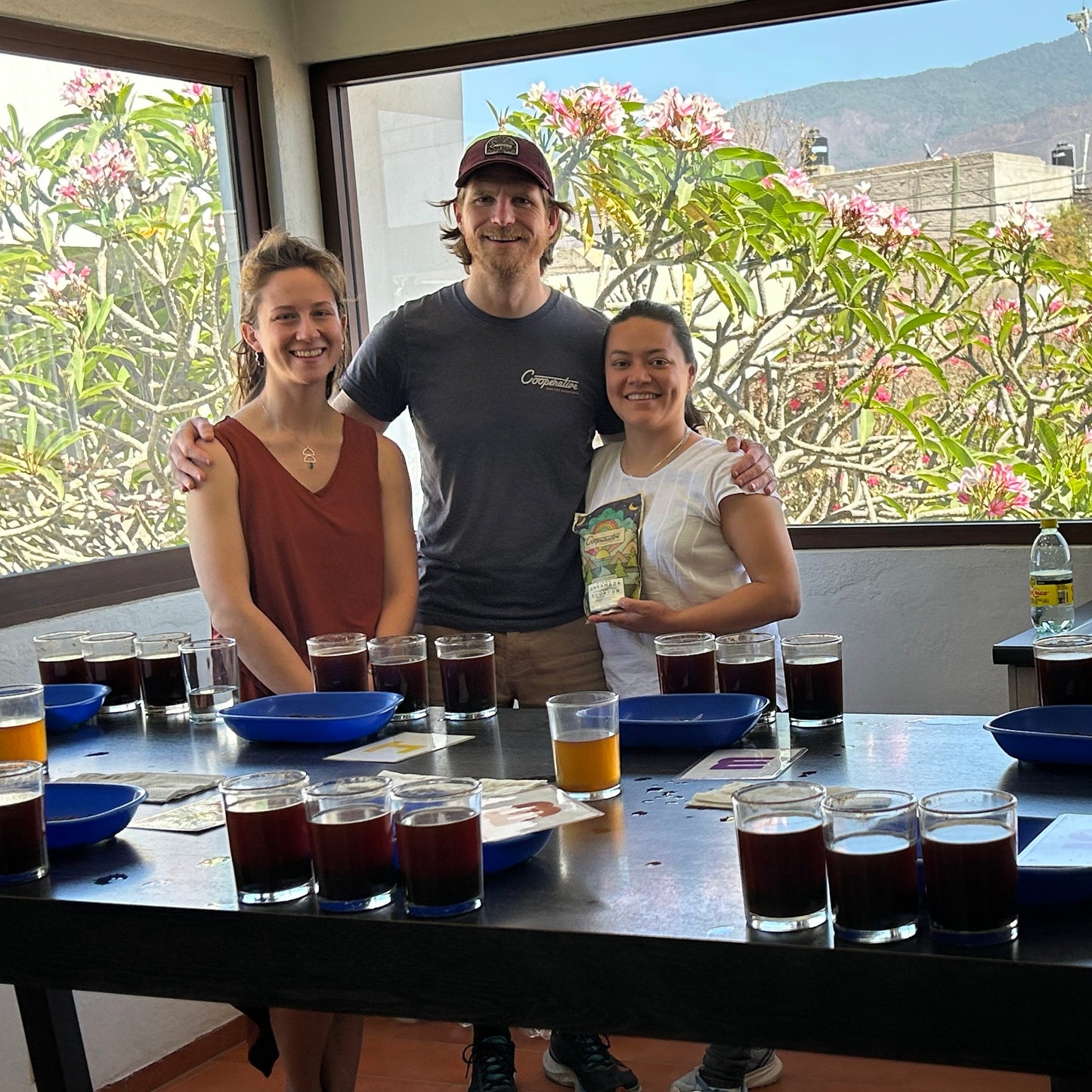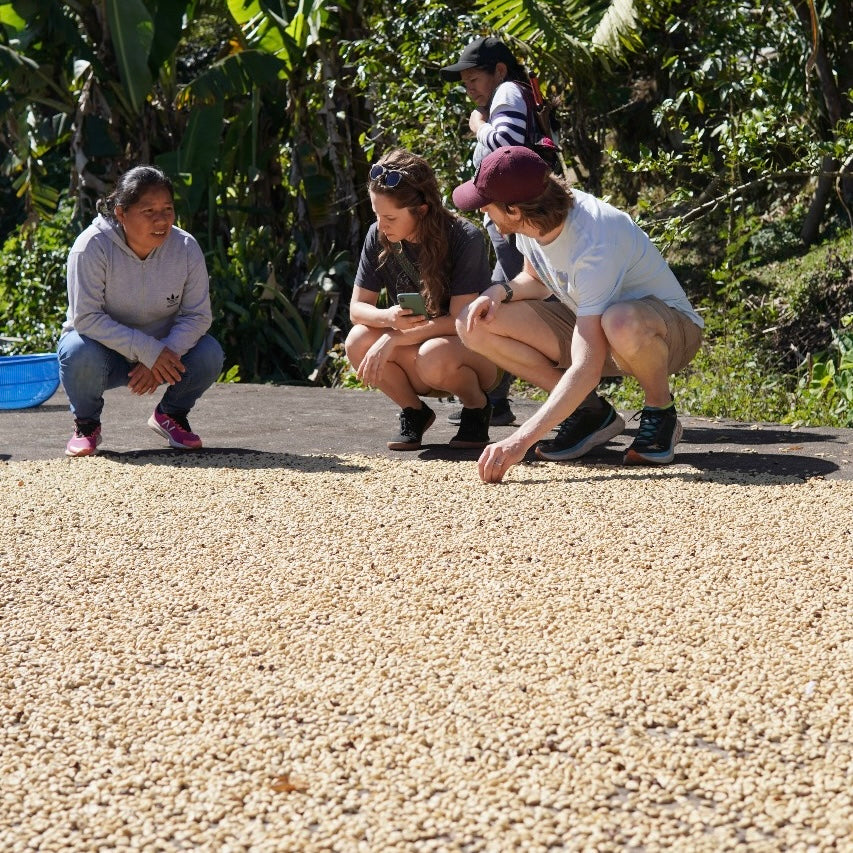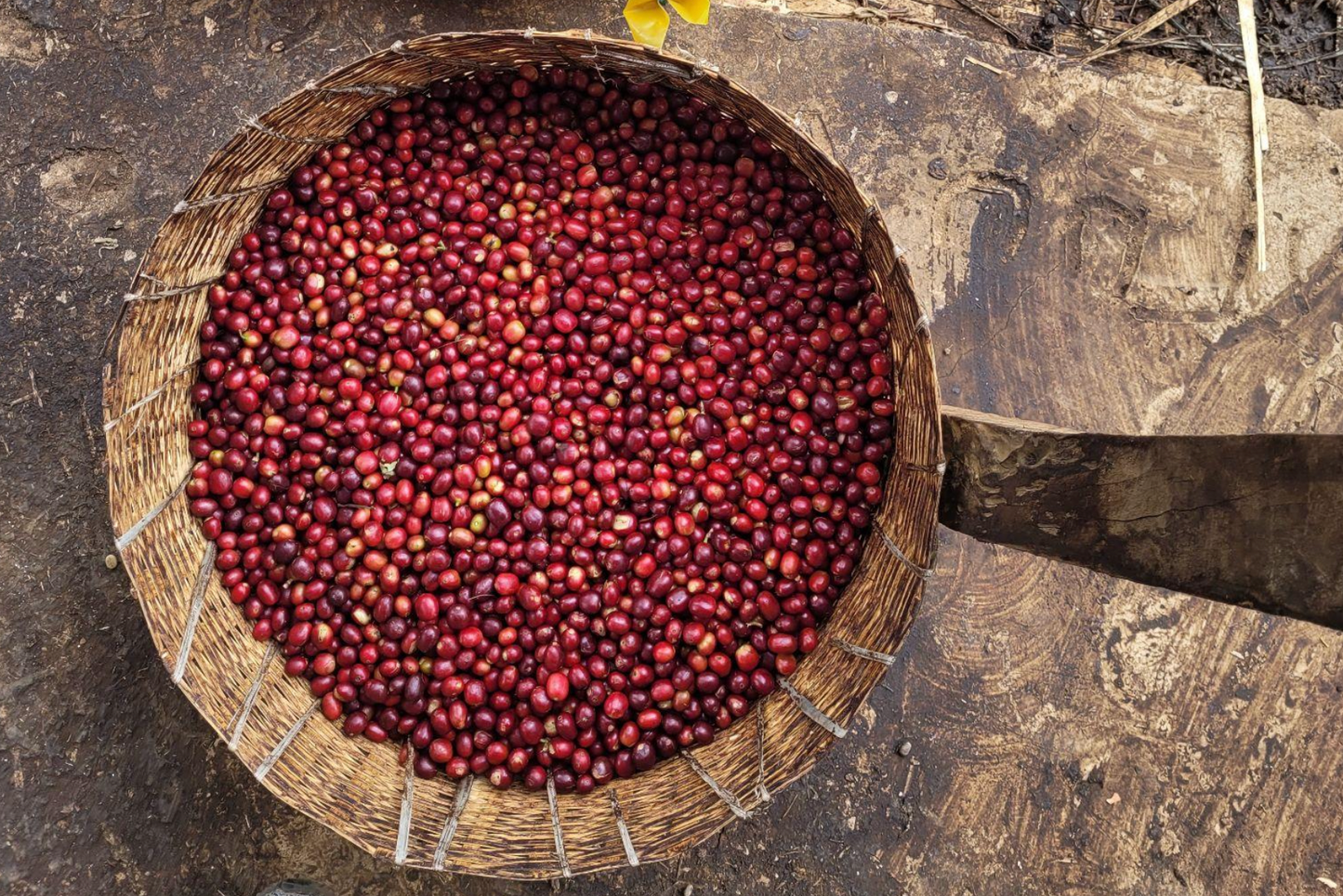This coffee is brought to you by dedicated cooperation.
It is our invitation to revel in stories that start far away and end in your cup. Read about the farmers and communities we partner with to source our coffees.
Wrap up of Our Global Table 2025: Celebrating the Culinary Diversity of Our Community
An afternoon filled with the folks and food that represent WNC’s rich heritage. Sample a passport’s worth of international flavors,...
Colombia with Caravela Coffee: Part 1
In March of 2025, Matt McDaniel (Cooperative's Founder) and Eli Masem (Roaster and Director of Quality), had the privilege of...
Visiting the Oaxaca Region, Part 2 : Osito Coffee & Terra Coffeas Mexico
During our recent sourcing trip to Oaxaca, Mexico we had the opportunity to visit with Frida of Terra Coffeas Mexico,...
Visiting the Oaxaca Region, Part 1 : CARI Coffee
Hannah and Matt went to Mexico to meet with our sourcing partners and purchase fresh coffees during the harvest season!
We purchase our coffees through strong relationships with North American-based importers and exporters located around the world, pursuing healthy and transparent supply chains and fair wages paid to farmers growing our coffee.
We prefer to purchase coffee from smallholding producers rather than large farms. Often these take the form of single-farmer lots of just a few hundred pounds of coffee, and sometimes they are community lots featuring many small farmers from a specific town in a country of coffee origin.
We forward-contract the majority of our coffee before each seasonal harvest occurs and those contracts are used to purchase green coffee from farmers in order to fulfill this purchase obligation. This method of purchasing brings greater security and stability to the coffee producers supplying our roastery.
We also purchase many of the same lots year after year and work consistently with our exporting/importing partners, which strengthens our sourcing relationships and brings sustainability to the entire process.
As we develop our existing relationships with exporters and coffee farmers around the world, we seek to increase the frequency of our travel to coffee origin in order to deepen the personal nature of these working partnerships. Currently, we’re able to do a lot of communication via digital means, but look forward to growing in our capacity to select our lots at origin.
We currently consistently purchase coffee from:
Guatemala
Mexico
El Salvador
Honduras
Peru
Colombia
Brazil
Uganda
Ethiopia
Kenya
Rwanda
Our importing partners are:
Fairtrade is another important global effort to ensure that farmers (of all kinds!) are paid well for their goods. Much like organic certification, it is unevenly available and can be a challenge for the smallest farmers to secure. One of the most appealing aspects of buying a product that is certified Fairtrade is that you can know what the growers/farmers received.
We are able to track what farmers receive for each of the coffees we buy, and on average we pay over double what Fairtrade prices are for our coffees.
We choose our importing relationships carefully, and only work with people who are focused on paying farmers the best.
The short answer is yes, the long answer is no.
The vast majority of specialty coffee is grown using organic methods, including many of the coffees we roast. Some of the coffees we roast are also certified organic.
Most coffee farmers grow very small amounts of coffee on small plots of land and do not have operational systems in place to pursue organic certification. The cost is high, the paperwork is complex, and in these cases we’re talking about farmers in remote areas growing coffee alongside other crops. Organic certification is easier to come by for larger, plantation-style farms or for larger cooperatives of farmers with a comprehensive organizational structure. Many of the organically certified coffees we feature are from co-ops, as we prefer not to purchase coffee from larger farms.
Our roastery itself is also not organic certified, so, even though we do roast coffees that are certified organic, we are not certified organic. So, when we have organic coffees in our blends or as single origin offerings, we cannot market them as such with the USDA logo.
We are philosophically aligned with organic certification, just as we are philosophically aligned with Fair Trade and B Corp certifications. However, the existence of these certifications doesn’t necessitate changing our operational flow or our coffee buying methods. We are in the process of carefully exploring which of these we want to invest in. Do not be surprised if you see one of these labels appear on Cooperative bags sometime in the future! In the meantime, we focus on purchasing traceable lots with an emphasis on cup quality.
What we do, however, is work with ethically minded importers that are extremely transparent about their practices with regards to how farmers grow their coffees, and deeply invested in the wellbeing of the people and lands in each country of origin. (Link to one of Caravela’s projects)
We lean in heavily on these relationships and are confident in the good work they are doing.
Our coffees are mostly roasted on what would be considered a light-medium spectrum.
However, by always prioritizing sweetness, we find that when we cup our coffees, they are juicy or creamy. So, if you are a person who enjoys medium-dark roasts because they are full-bodied, you may be surprised by how much you enjoy our coffees.
Single origin coffee is a term used in specialty coffee to describe a coffee that can be traced to one unique origin. This can be as specific as a couple hectares of land, if the coffee was grown by one person, or as broad as a community, if a group of producers all brought their coffee to a central washing station where it was processed together.
We name each of our single origin coffees based on where we know it to have been grown and produced.
A coffee blend is a combination of specific, seasonally-rotating coffees that are blended together to create a consistent product throughout the year.
Our three blends Levity, Virtue, and Gravity are each formulated in order to maintain their flavor year-round even as the component coffees we use change.
When we purchase an individual coffee, our goal is to use that coffee within 6 months of its arrival. Because of this, we purchase and emphasize coffees from the Northern Hemisphere from May through November, and the Southern Hemisphere from December through May. This allows us to feature fresh coffees in our blends while keeping the overall product tasting the same.
Try a Signature Blends Tasting Box to get a sampling of the range of flavors.
There are many factors that go into brewing your perfect cup of coffee including water temp, brew method, roast profile, the direction of the wind, and what color socks you’re wearing that day. At the end (or beginning?) of the day though, you can really boil it all down to coffee-to-water ratios.
We recommend starting with around a 1:16 ratio for your brew, and then experimenting to adjust the amount of coffee and grind to your taste.
CLICK HERE FOR COFFEE TO WATER RATIO CHART
If you’re wanting to dive in deeper, come to a coffee cupping event, or talk to us about our barista training for wholesale partners.
One day we’ll get around to filming ourselves sharing all the deep cuts of coffee knowledge, but we have a full plate sourcing the best green coffees we can find, roasting them to perfection, visiting with wholesale customers and hosting events at our roastery. So for now, we can point you towards these YouTube videos that help break down the 🌀☕science of coffee ☕🌀:
Coffee Brewing Ratios Explained
The Ultimate French Press Technique
A Beginner’s Guide to Resting Coffee
To really get the full rundown, we offer coffee cupping events at our Roastery in West Asheville, and barista training for wholesale partners.
Events & Tastings
Join us at the Roastery for a coffee cupping and taste a variety of different coffees. We'll share the stories behind each cup and you'll learn about the methods of our trusted sourcing partners.
Cuppings are held in our Roastery's Classroom, located on the back side of our café at 210 Haywood Road, Asheville NC, 28806.
We now request that you please reserve your spot to join us!
The event remains free, but our classroom capacity is limited to 15 guests.
-
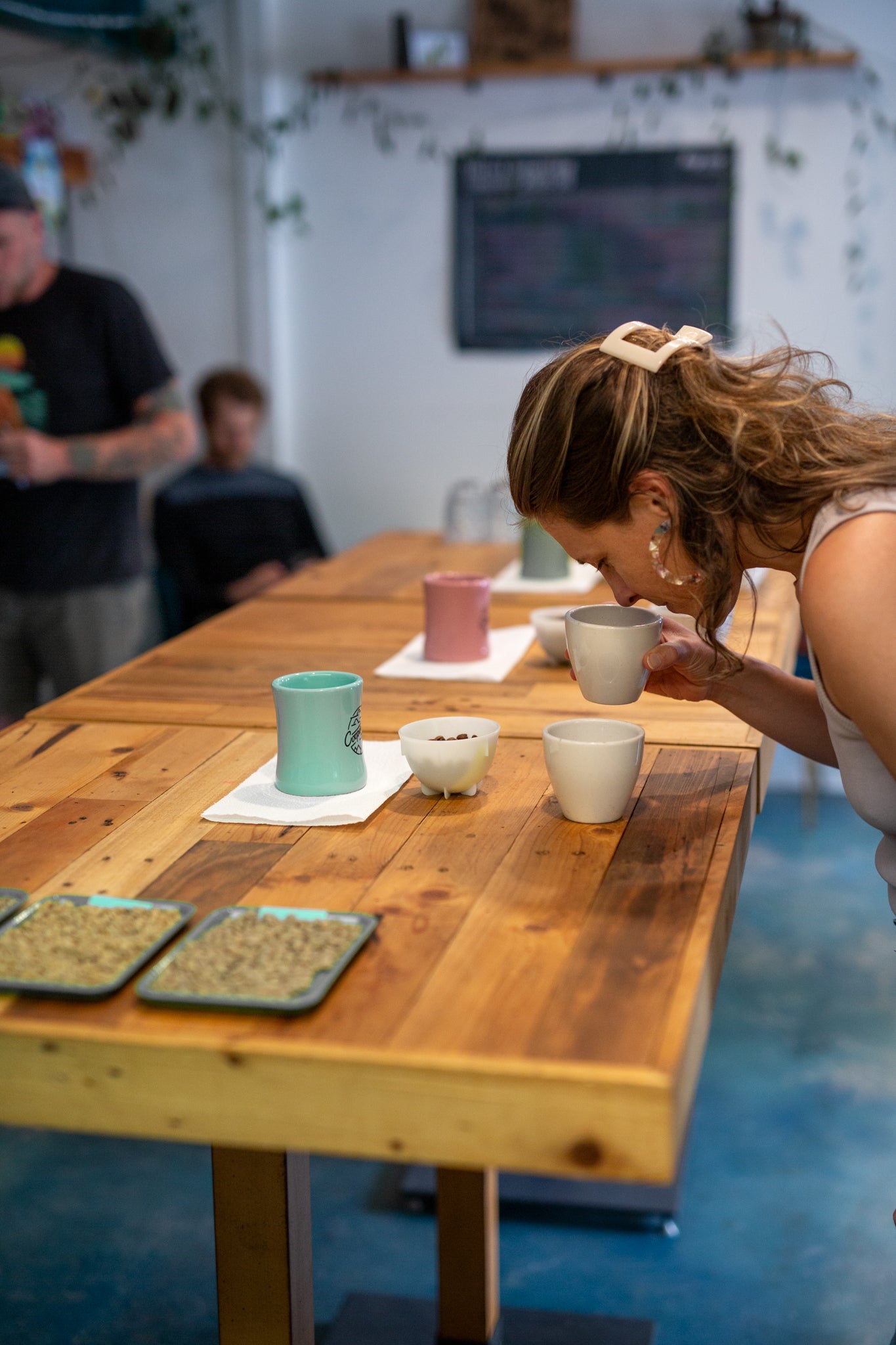
-
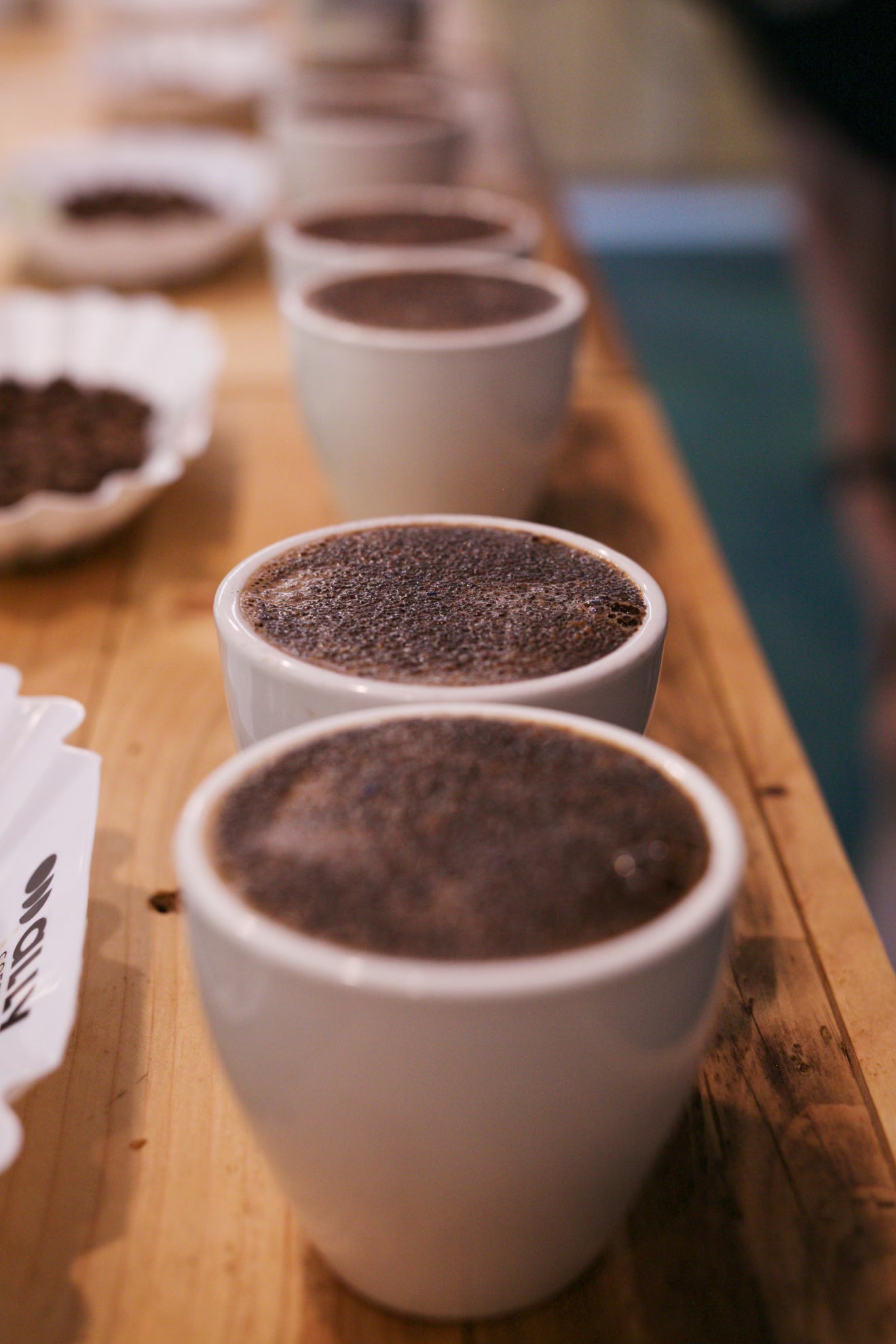 Friday, March 20 at 12pm
Friday, March 20 at 12pmPublic Cupping
210 Haywood Road -
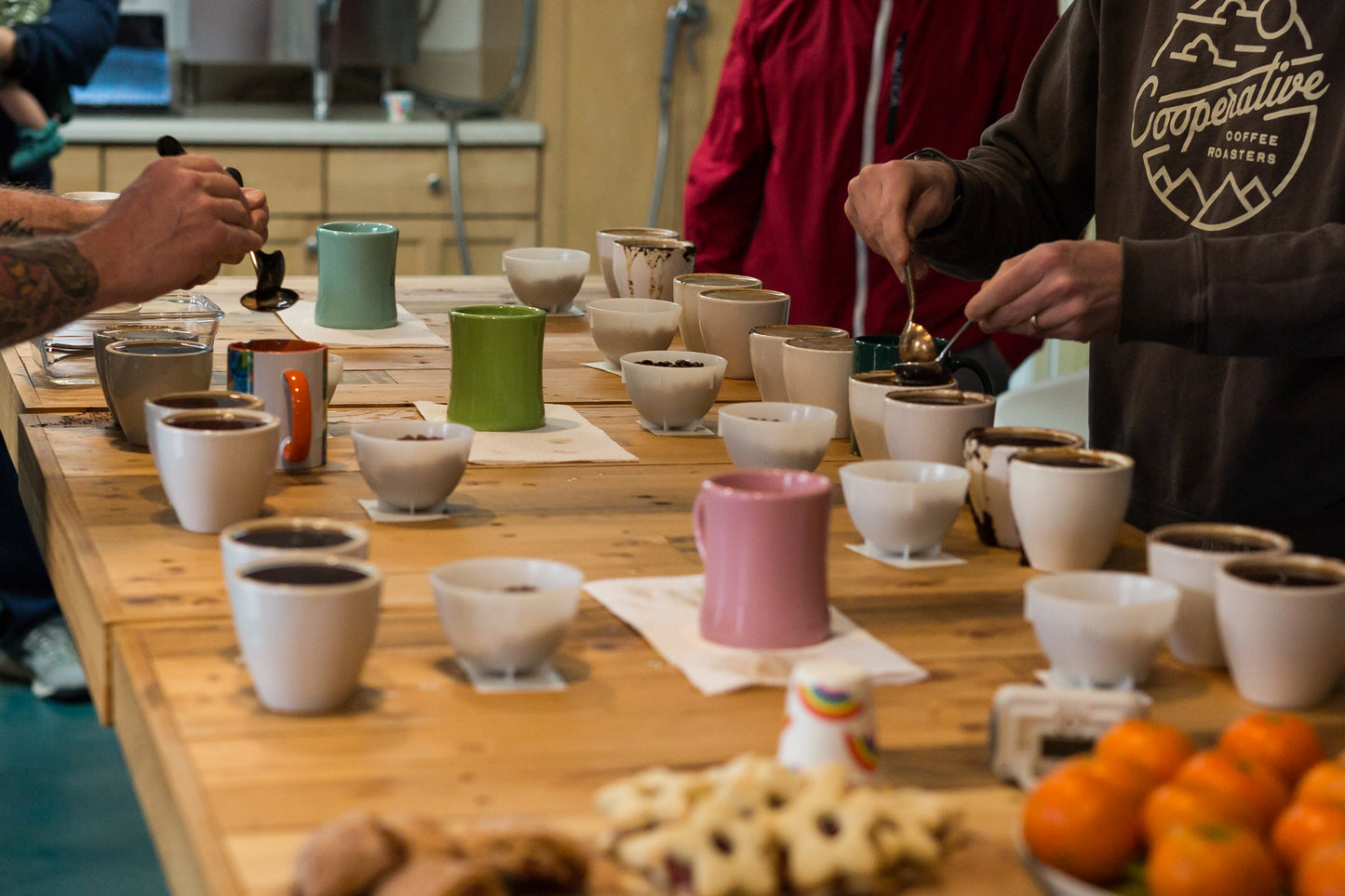 Friday, April 17 at 12pm
Friday, April 17 at 12pmPublic Cupping
210 Haywood Road
Press & Collaboration
Mountain Xpress : Best Of WNC - Third Place, Best Coffee Roaster 2025, 2024, 2023
Angel's Cup Featured All Stars 2023 - Present
Creative Mornings Asheville Sponsor
Host of Our Global Table 2025 : A Benefit for Pisgah Legal Services
__
Red Fox Coffee Merchants : How Roasters Are Meeting the Moment Amid High Prices & Tariffs
Daily Coffee News : Roasting and Retail Work Together at Cooperative Coffee Roasters in Asheville
The Midpacker Podcast: Matt McDaniel | Talking Coffee, Building Cooperative Coffee Roasters, & Being Faster As A Master
Business Insider : 3 roasters tell BI why your cup of coffee is getting more expensive — and it's not only because of tariffs
Business Insider : It's a chaotic world right now. Here's why that makes it the ideal time to start a business.
Daily Coffee News: 2024 Year In Review: 10 New Coffee Shops in the US Southeast
